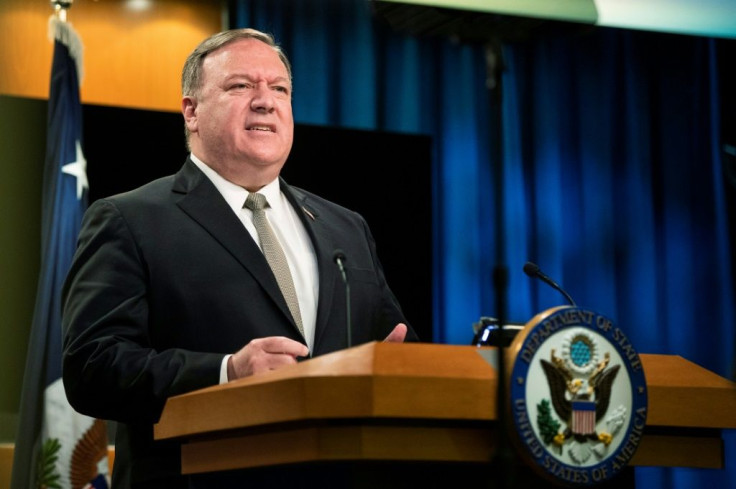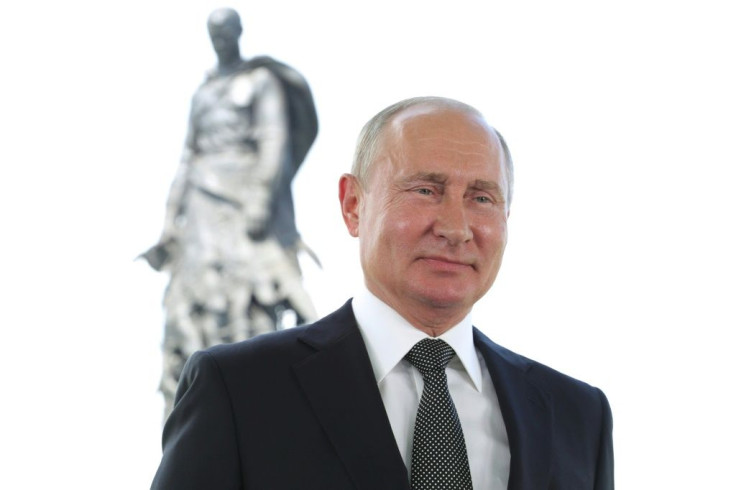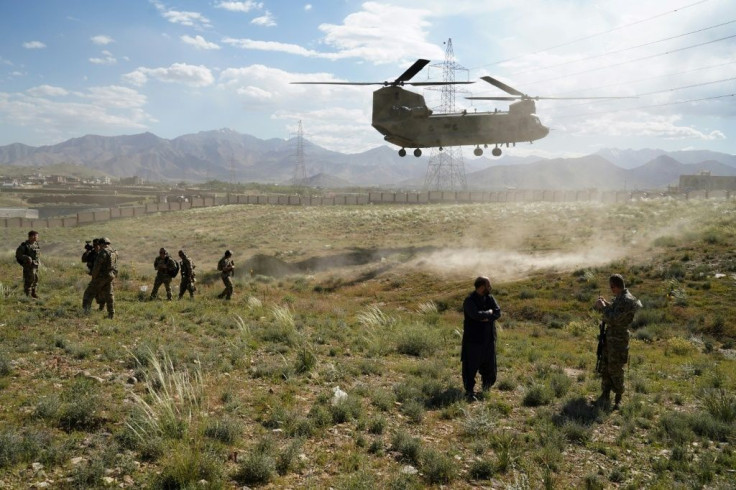Pompeo Insists US Firm On Russia But Leaves Open Door To Putin

President Donald Trump's administration insisted Wednesday it has been firm with Russia over Afghanistan but kept open the door to inviting President Vladimir Putin for a summit.
Washington has been in uproar since newspapers reported that US intelligence believed a Russian unit paid bounties for Taliban-linked militants to kill US troops.
Trump again denied reports that he had been briefed, saying the intelligence was not strong enough to warrant telling the president.
"I think it's a hoax by the newspapers and the Democrats," he told the Fox Business Network.
"I think, frankly, that many of the intelligence people didn't think it was something that even happened," he said.
Secretary of State Mike Pompeo said it was "nothing new" that Russia has been acting against US interests in Afghanistan -- but defended how the administration had responded.
"We took this seriously; we handle it appropriately," Pompeo, a former CIA chief and stalwart Trump ally, said without commenting on the intelligence.

"The Russians have been selling small arms that have put Americans at risk there for 10 years. We have objected to it," he told a news conference.
"When we see credible information that suggests that the Russians are putting American lives at risk, we're responding in a way that is serious."
But Pompeo did not rule out welcoming Putin to the United States.

Trump mused last month about inviting the Russian leader to an expanded summit of the Group of Seven industrial democracies -- which kicked out Russia over its 2014 takeover of Crimea.
Trump "gets to decide if he wants him to come to a summit or not. That's his decision," Pompeo told reporters.
"I'll certainly leave that to him. But I do believe it is absolutely important that we have more frequent engagement with the Russians."
Pompeo said that the United States meets with Russia to "convince them to change some of the activities" that go against US interests.
Trump has repeatedly voiced hope for better relations with Putin, Russia's paramount leader for two decades who on Wednesday appeared to win a constitutional referendum that could keep him in power until 2036.
Trump's stance has alarmed even some members of his Republican Party, which has traditionally advocated a hard line on Russia.
Robert Menendez, the top Democrat on the Senate Foreign Relations Committee, on Wednesday proposed sanctions over the purported bounty program.
In an amendment offered to a massive defense spending bill, the United States would freeze the assets and ban visas for Putin, Defense Minister Sergei Shoigu and other Russian officials if they are found to be involved in offering rewards to kill troops of the US-led coalition in Afghanistan.
"As more details continue to surface on this despicable Russian campaign, Donald Trump has proven once again that he is incapable of protecting our troops and our country," Menendez said in a statement.
The New York Times, which first reported the alleged bounties, said that the intelligence was presented in February as part of a written daily briefing prepared for the president.
Trump has been widely reported to not pay close attention to the intelligence briefings.
The bounty allegations have been denied both by Russia and the Taliban, who signed a deal with the United States on February 29 under which it has stopped targeting coalition forces.
© Copyright AFP {{Year}}. All rights reserved.





















